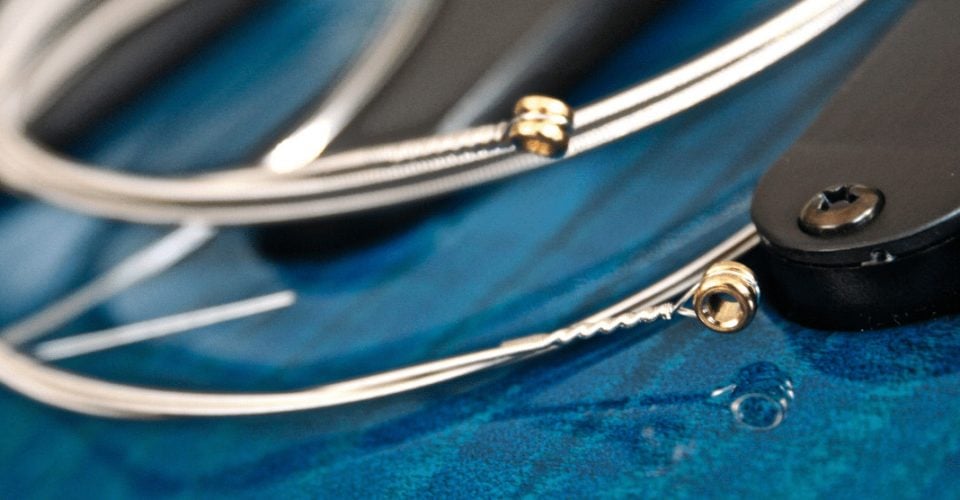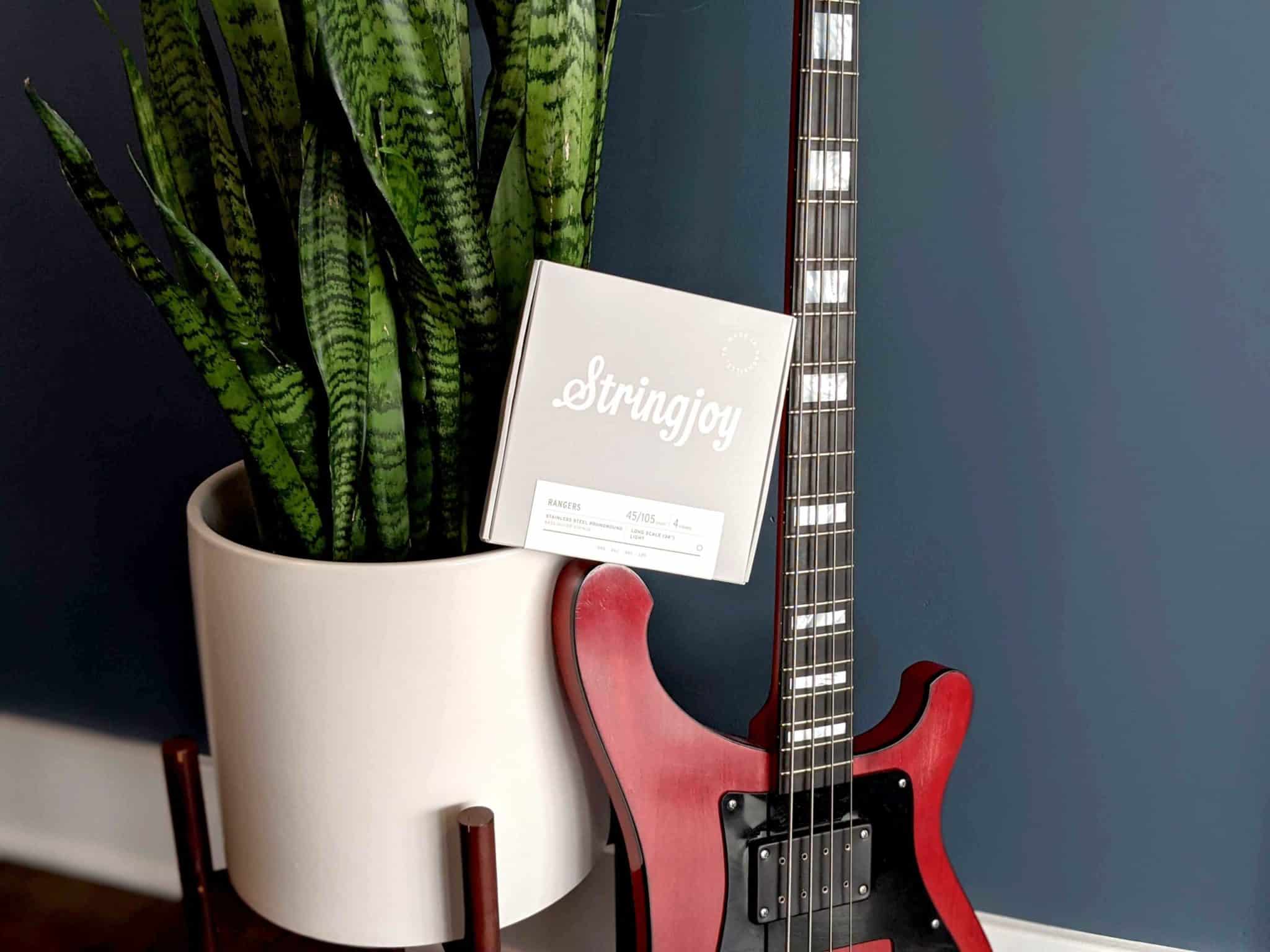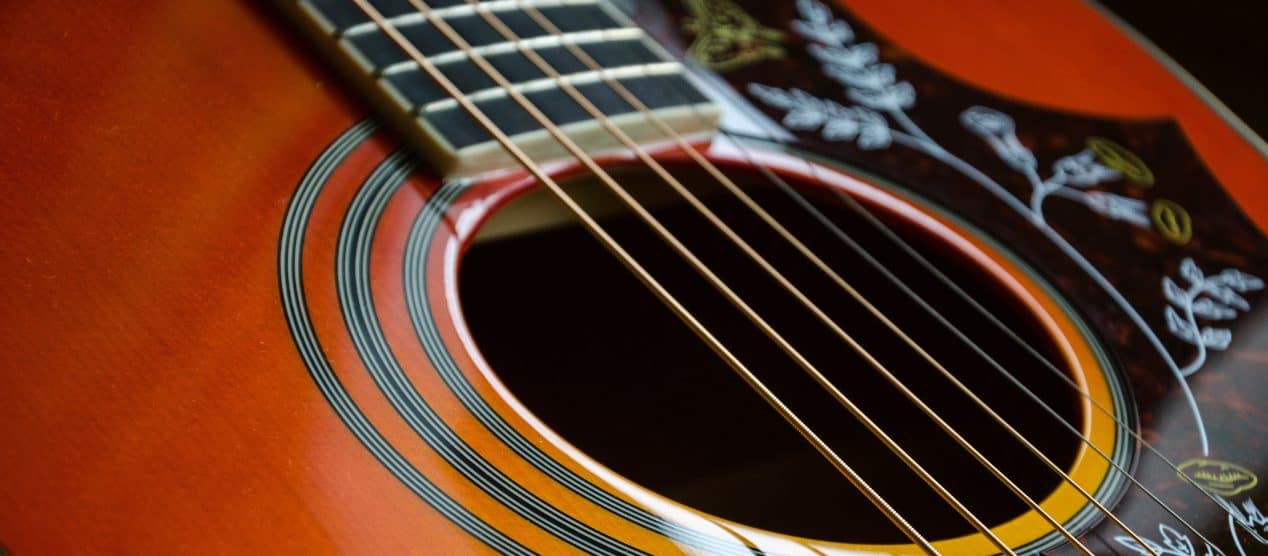It’s shootout time! Pure Nickel vs Nickel Wound or Nickel-Plated Steel Guitar Strings. We had our buddy Jay Leonard J take a look at both our pure nickel Broadways and our nickel wound/nickel-plated steel Signatures to explore both the sonic and the tactile differences of each:
There are a ton of questions and misconceptions that come up when guitar players are debating pure nickel vs nickel wound guitar strings, so we wanted to set the record straight by answering some common questions, and comparing the features of both here.
What does Pure Nickel or Nickel Wound even mean?
Both terms are referring to the wrap wire of the wound strings in the set. In Nickel Wound / Nickel-Plated Steel strings, the wrap wire is steel, plated with nickel—typically about 8% of the finished wrap wire is nickel, and 92% is steel. In Pure Nickel guitar strings, the wrap wire is, well, pure nickel.
How is the core wire different?
It depends—depending on the brand, it might not be different at all. In our Broadways, we used a round steel core underneath the pure nickel wrap wire in order to give them a distinct character and feel when compared with the hexagonal core we use in our Signatures. But that’s just us. Many/most of the pure nickel string brands out there feature hexagonal cores just like most nickel-plated steel strings do. Read up more on the difference between round core and hexagonal core here.
Probably the biggest misconception around pure nickel strings is that the finished string itself is “pure nickel,” core and all. It’s not. Nickel isn’t strong enough to hold up to the rigorous demands placed on core wire or plain strings, as it’s a much softer metal. If you made a nickel-core string, strung it up, and bent it, it would just stay bent and hang off the fretboard. That’s no good. Therefore, pure nickel strings always feature stainless steel cores and steel plain strings, just like nickel wound/nickel-plated steel strings do.
What’s the difference between “Nickel Wound” and “Nickel-Plated Steel” strings?
There’s no difference, these words have been used interchangeably in the electric guitar string world for decades. It’s confusing, we know.
What are the sonic differences between pure nickel and nickel wound strings?
Generally speaking, pure nickel guitar strings are warmer, are fuller in the bass register, and have less mid-range content. Think of them like a string that’s already been broken in a bit.
Nickel wound guitar strings are brighter, more mid-rangey, and have sharper, crisper attack.
Which type of strings lasts longer?
In terms of tonal consistency, pure nickel strings definitely have nickel wound strings beat. While nickel wound strings will sound much brighter at first and then gradually lose that tone over the ensuing weeks/months, pure nickel strings sound a bit more broken in at first and hold that tone for longer.
The biggest reason for this is that the nickel plating on nickel-plated steel is ground down over time against frets and from wear, exposing the steel underneath. While nickel is not prone to oxidation, steel certainly is, so once the steel comes through those strings will start to corrode. Pure nickel on the other hand, only has nickel underneath—it’s like “Turtles All the Way Down” which you should definitely listen to.
Play the difference for yourself!
As with all things guitar, you never know how something is going to perform until you try it on your own guitar.
Grab a set of our pure nickel, round core Broadways and feel all that vintage mojo for yourself.
Or, try a set of our nickel wound, hexagonal core Signatures and get the fast attack and presence it takes to cut through the mix.








5 Responses
Is there a difference in the overall tension for pure vs plated? Or would a set of tens be roughly the same?
Great question! On our strings our pure nickel Broadways have less tension than our nickel wound signatures, but that has more to do with the core to cover ratios they use than the difference in mass between pure nickel and nickel-plated steel.
Definitely liking the Pure Nickel sound!
I like that Bluesy/Jazzy sound & feel, prefer that vintage tone.
I see so many ads for “phosphorus bronze” strings. Is the difference here nickel over bronze? and What makes nickel superior?
Great question Stephan! Phosphor bronze is used for acoustic strings as it projects more (gives you more volume) in that context. Since phosphor bronze is not magnetically reactive, it does not work for electric guitar strings. So neither is better or worse, just used for different purposes.